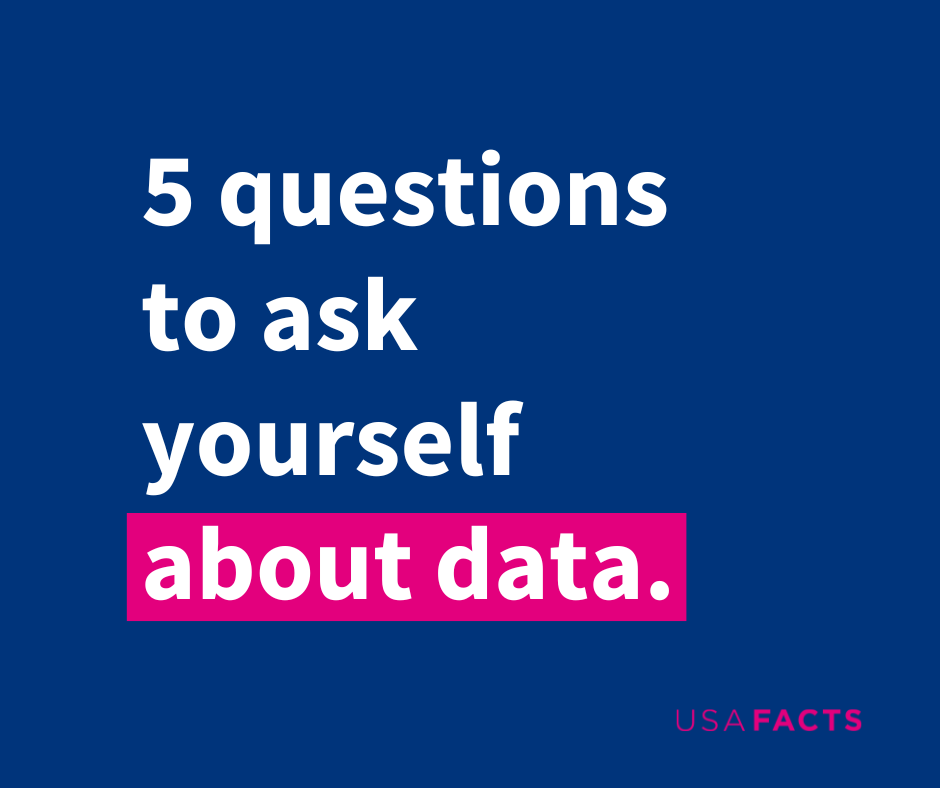If you've arrived here at USAFacts, it might be because you're curious about how the government works, or want the facts on a certain issue that's important to you.
These were some of the biggest reasons Steve Ballmer founded this site and initiative back in 2017. He wanted to make it easier for all Americans to get the facts on how our government works, how it collects revenue, how it spends it, and what that might mean for all of our trust in government. You can read more about our mission here.
These facts, and all of the articles and analysis on USAFacts, are built on data reported by the US government itself. Which naturally leads to an important question:
Why should you trust US data?
At USAFacts, we think it's important to not just take data at face value, but understand where it comes from, how it's collected, and how we should put that data into a broader context. And no data is ever perfect or unimpeachable. Any number on a spreadsheet is the outcome of dozens, or even hundreds, of different human decisions. And like all things involving humans, they have their strengths and weaknesses.
All that being said, the US government remains one of the most reliable and widely accepted sources of data reflecting the overall health of our country, our economy, and our democracy. Each federal agency has its own process for collecting and reporting certain types of data, but overall, government data remains widely accepted as nonpartisan, transparent, and accurate.
What questions should you ask when looking at the data?

Here are a few ways you can ask the right questions about data, whether it's here on USAFacts, or wherever your fact-finding journey takes you:
- Check the source: Is the data from a reputable government agency? Does it link to a working URL? Is the data up-to-date or regularly scheduled to be updated? Is there a public point of contact where the public can send data-related questions?
- Check the methodology: How is the data collected? How can the collection of the data be skewed? (For example, if a phone survey is meant to be representative of the population, how does it account for people who have no access to a phone?) Survey respondents must be weighed appropriately so the findings are reported accurately and are fairly represented.
- Check the consistency: Are there extreme changes in data that seem difficult to explain? Is a subset of this data missing? Did places not report data? Has anything been done to account for missing data? Is state data comparable?
- Look for context: Is the data normal, low, or high compared to other points in time? When was the data collected? What is the population or group that the data calls out?
- Don’t take data at face value: Check footnotes in datasets to see if there are errors or missing data. Government agencies will flag problems with a dataset in its methodology.
Our mission is to help everyone be better informed (with better data)
At USAFacts, we strive to offer clear, accessible data and reporting from the US government, and we'll continue to push for greater transparency. By all of us looking closely at how the government works, we believe all Americans will be able to make better decisions, together.
Learn more about our mission at USAFacts, and get the data directly in your inbox by signing up for our newsletter.
Keep exploring
Page sources and methodology
All of the data on the page was sourced directly from government agencies. The analysis and final review was performed by USAFacts.